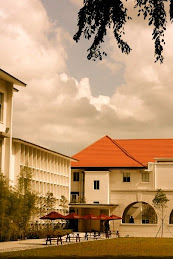
Background:
Singapore’s housing programme has widely been regarded a success since even the poorest income deciles enjoy access to affordable and quality public housing while heavy subsidization efforts seem sustainable both politically and economically. Nonetheless, when considering the wider applicability of lessons learnt,
At the time of the 1960 Housing and Development Act, public housing efforts initiated earlier had made little success – city slums were sprawling, access to basic services and expanding urban poverty posed main challenges. In this context, the newly elected government declared affordable and accessible housing for the poor a top priority. The achievement of this goal rests on a range of key factors:
Pragmatic and effective policy implementation: Singapore stands out in its ability to translate planning into policy action almost immediately. Once planning decisions have been made, resources and legislation are mobilized quickly and lines of responsibility spelled out clearly. While a comprehensive planning process certainly supports this aim, two factors stand out:
Centralized housing authority: the HDB is responsible for all aspects of the public housing programme except for the setting of rental and sale prices (undertaken by the Ministry of National Development).
No political opposition: Singapore has a rather strong government facing neither an effective opposition party nor a strong culture of political activism.
Policy lessons:
The
Political commitment is certainly a prerequisite for successful housing policy. Particularly in developing countries improving the livelihoods of the urban poor is often not a priority due to the little political influence they have. Poor and rich countries alike should communicate to constituencies the positive externalities associated with housing the poor. At the same time mechanisms are needed to ensure transparent resource allocation.
Singapore’s high degree of political pragmatism is more controversial as democracies in general face a more diverse political reality. Nevertheless, some policy lessons can be drawn:
- Informed planning can greatly facilitate the implementation process.
- A process of constant review and policy refinement is crucial to enhance knowledge and programme quality.
- Good management and clear responsibility structures reduce transaction costs and duplication of efforts.
- The inclusion of all social groups enhances sustainability and reduces political opposition.
The high degree of subsidization might not be feasible in other countries as (i) housing competes with other sectors for government expenditure, (ii) developing countries in particular rely heavily on external funding, and (iii) ideological differences exist regarding the balance between state intervention and market forces. Nonetheless, three generalizations can be offered:
- Subsidies should be progressive so that the neediest receive the greatest share. There should thus be different housing categories, while their price should be proportionate to ability to pay. This implies the need to develop a mechanism of identifying and targeting the poor, a difficulty that developing countries might face.
- The level of government responsible for administration and maintenance should receive fund transfers from higher levels to make subsidization compatible with maintenance.
- Direct competition with other sectors for funds should be limited to enable long-term planning.
Access to finance is crucial to encourage ownership, making housing policy more sustainable in the long run:
- Security of tenure is crucial for reducing investment risks and encouraging home ownership, particularly in developing countries.
- In order to include the poor in the scheme, loans have to be accessible to low-income groups and should not significantly reduce disposable income.
- An upgrading scheme should ensure a filtering process which will raise overall quality of living.
Extensive acquisition of private land is a very controversial policy option not necessarily recommendable. Especially in poor countries with weak accountability structures such legislation opens opportunities of abuse. Points of learning are:
- Enforceable measures to prevent land speculation are needed.
- Transparency in both the use of public land and in the allocation of housing units fosters political support.
- The use of public land should be rationalized and brought in line with policy priorities.
It seems needless to say that the promotion of economic growth raises living standards and the demand for decent housing. Housing is one social policy sector which can be instrumental in distributing this wealth more equitably. It is also worth pointing out that economic growth raises tax revenues upon which public housing finance relies.
Conclusion:
Public housing in


2 comments:
Hello Everybody,
My name is Mrs Sharon Sim. I live in Singapore and i am a happy woman today? and i told my self that any lender that rescue my family from our poor situation, i will refer any person that is looking for loan to him, he gave me happiness to me and my family, i was in need of a loan of S$250,000.00 to start my life all over as i am a single mother with 3 kids I met this honest and GOD fearing man loan lender that help me with a loan of S$250,000.00 SG. Dollar, he is a GOD fearing man, if you are in need of loan and you will pay back the loan please contact him tell him that is Mrs Sharon, that refer you to him. contact Dr Purva Pius,via email:(urgentloan22@gmail.com) Thank you.
BORROWERS APPLICATION DETAILS
1. Name Of Applicant in Full:……..
2. Telephone Numbers:……….
3. Address and Location:…….
4. Amount in request………..
5. Repayment Period:………..
6. Purpose Of Loan………….
7. country…………………
8. phone…………………..
9. occupation………………
10.age/sex…………………
11.Monthly Income…………..
12.Email……………..
Regards.
Managements
Email Kindly Contact: urgentloan22@gmail.com
My name is.Mrs.Anna Daniel. I live in Ukraine i am a happy woman today? i need to use this time to tell all people how i got my loan from this honest and God fearing man loan lender that help me with a loan of $84,000 please contact him. if you also need a loan without any problem he name is Dr Purva Pius email (urgentloan22@gmail.com) tell him that is Mrs.Anna Daniel that refer you to he
Post a Comment